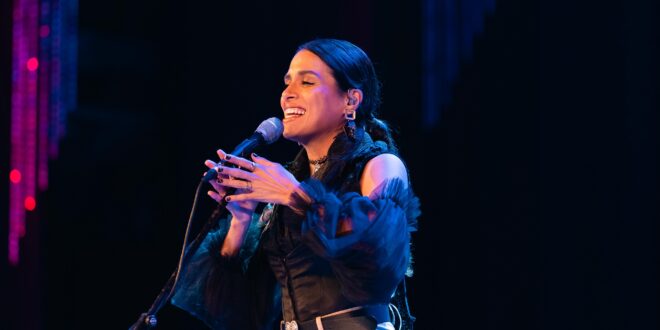Sahar Ragab
In a vibrant celebration filled with colors, symbolism, and emotion, the Ambassador of Mexico to Egypt, Leonora Rueda, hosted a remarkable cultural evening at her residence in Cairo to inaugurate the “Solar Gates” Altar of the Dead, marking the traditional Day of the Dead — one of Mexico’s most iconic and philosophical cultural festivities.
Welcoming her guests to what she warmly called “the House of Mexico,” Ambassador Rueda emphasized that the Day of the Dead is not about mourning but about celebrating continuity and unity between the living and the departed, reflecting a profound Mexican vision that life and death are intertwined parts of one eternal cycle.
She introduced “La Catrina”, a symbolic figure of the celebration, originally designed by Mexican artist José Guadalupe Posada and later named by the famous painter Diego Rivera. Dressed elegantly and playfully, La Catrina reminds everyone — with irony and wisdom — that death is the great equalizer, and that accepting it is, in essence, a tribute to life itself.
Ambassador Rueda traced the roots of the celebration back to Mexico’s indigenous civilizations, who believed for thousands of years in the continuity of the soul and honored their ancestors at the end of the agricultural cycle, expressing gratitude for the harvest and welcoming new beginnings. With the arrival of the Spaniards, these traditions blended with Catholic beliefs, creating what is now celebrated on November 1 and 2 — the days when the souls of children and adults return to visit their loved ones.
Speaking about the altar titled “Solar Gates”, the ambassador described it as an artistic representation of the eternal journey of the soul through light. The design brings together the ancient Mexican vision of the cosmos, symbolized by the sacred boat guiding souls, and the Egyptian solar barque of Ra, the sun god who crosses the underworld each night to be reborn at dawn. The two civilizations, she noted, share a deep belief that death is not an end but a passage to new life.
The altar blends traditional Mexican elements such as marigold flowers, candles, and papel picado (decorative paper) with the aesthetics of Egyptian sun temples, creating a symbolic space where two worlds meet — a poetic dialogue between light, life, and eternity.
Ambassador Rueda expressed her gratitude to all who contributed to creating the altar, especially Mafalda Budib, curator of the exhibition; Juan Manuel Frausto, the altar’s designer; and Silvia Rodríguez, who brought La Catrina to life wearing a costume designed by Jorge Campos.
The evening culminated with the unveiling of the altar and a captivating musical performance by Mexican singer Andrea Bayardo, whose soulful voice and melodies infused the celebration with warmth and spirit — a perfect harmony between the sun and the souls, between Mexico and Egypt.
 موقع وجه أفريقيا موقع وجه أفريقيا هو موقع مهتم بمتابعة التطورات في القارة الأفريقية
موقع وجه أفريقيا موقع وجه أفريقيا هو موقع مهتم بمتابعة التطورات في القارة الأفريقية



